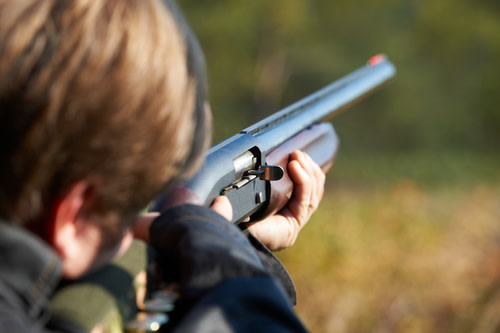Marksmanship is often perceived as a physical skill—steady hands, precise aim, and controlled breathing. However, the true essence of exceptional shooting performance lies in the psychological realm. The ability to maintain mental focus, manage stress, and harness psychological strategies significantly influences shooting accuracy and overall performance. “The Psychology of Marksmanship: How Mental Focus Enhances Shooting Performance” delves into the mental aspects of shooting, exploring how psychological factors contribute to precision and effectiveness.
### The Role of Mental Focus in Shooting
1. **Concentration and Attention**
– **Focused Attention**: Successful marksmanship requires unwavering concentration. Shooters must focus on the target while ignoring distractions, including environmental factors and internal thoughts. Concentration techniques, such as focusing on a single point or using visualization, help shooters maintain their attention and improve accuracy.
– **Attention Control**: Managing attention involves filtering out irrelevant stimuli and concentrating on the task at hand. Shooters develop the ability to zone in on the target, minimizing the impact of external distractions and internal stress.
2. **Stress Management**
– **Performance Anxiety**: Performance anxiety can impair shooting performance by causing muscle tension, shaky hands, and a decrease in focus. Effective stress management techniques, such as deep breathing exercises and progressive muscle relaxation, help shooters stay calm and composed under pressure.
– **Pre-Shot Routine**: Establishing a consistent pre-shot routine helps reduce anxiety by creating a sense of familiarity and control. A well-defined routine, including steps like adjusting the grip or visualizing the shot, prepares the shooter mentally and physically.
3. **Visualization and Mental Rehearsal**
– **Imagery Techniques**: Visualization involves mentally rehearsing the shooting process, including aiming, trigger pull, and follow-through. Shooters use imagery techniques to create a mental image of successful shooting, reinforcing positive outcomes and enhancing confidence.
– **Mental Rehearsal**: Mental rehearsal allows shooters to practice scenarios and strategies without physical practice. By repeatedly visualizing successful performance, shooters build confidence and prepare for real-world situations.
### Psychological Strategies for Enhancing Marksmanship
1. **Goal Setting and Motivation**
– **SMART Goals**: Setting Specific, Measurable, Achievable, Relevant, and Time-bound (SMART) goals helps shooters stay focused and motivated. Clear goals provide direction and purpose, driving continuous improvement and performance enhancement.
– **Intrinsic Motivation**: Cultivating intrinsic motivation, or the drive to perform for personal satisfaction and achievement, fosters a deeper commitment to the sport. Shooters who are intrinsically motivated are more likely to engage in deliberate practice and overcome challenges.
2. **Cognitive Strategies**
– **Positive Self-Talk**: Positive self-talk involves reinforcing confidence and maintaining a constructive mindset. Shooters use affirmations and encouraging statements to counteract negative thoughts and enhance self-belief.
– **Cognitive Restructuring**: Cognitive restructuring involves changing negative or irrational thoughts into positive and realistic ones. By addressing cognitive distortions, shooters can manage stress and maintain a focus on their strengths and capabilities.
3. **Relaxation Techniques**
– **Breathing Exercises**: Controlled breathing helps regulate physiological responses and manage stress. Shooters use techniques such as diaphragmatic breathing and the “4-7-8” method to stay calm and maintain focus before and during shooting.
– **Progressive Muscle Relaxation**: Progressive muscle relaxation involves tensing and then relaxing different muscle groups to reduce physical tension and anxiety. This technique helps shooters remain physically relaxed and mentally focused.
### The Impact of Mental Training
1. **Enhancing Performance**
– **Consistency**: Mental training contributes to consistent performance by reinforcing positive habits and responses. Shooters who practice mental strategies are more likely to replicate successful performance in various conditions.
– **Adaptability**: Mental training helps shooters adapt to changing conditions and unexpected challenges. By developing mental resilience, shooters can handle pressure and maintain focus regardless of external factors.
2. **Building Confidence**
– **Self-Efficacy**: Self-efficacy, or the belief in one’s ability to succeed, is crucial for marksmanship. Mental training techniques, such as visualization and positive self-talk, build self-efficacy by reinforcing a shooter’s confidence in their skills and abilities.
– **Resilience**: Building resilience through mental training helps shooters recover from setbacks and maintain motivation. Resilient shooters view challenges as opportunities for growth and remain committed to improving their performance.
3. **Creating a Winning Mindset**
– **Focused Goals**: A winning mindset involves setting clear, focused goals and maintaining a positive attitude. Shooters with a winning mindset are more likely to stay motivated, work diligently, and achieve their desired outcomes.
– **Mental Toughness**: Mental toughness encompasses attributes such as perseverance, adaptability, and confidence. Shooters with mental toughness are better equipped to handle pressure, overcome obstacles, and perform at their best.
### Integrating Psychology into Training
1. **Mental Skills Training Programs**
– **Customized Training**: Mental skills training programs can be tailored to individual needs, addressing specific challenges and goals. These programs may include components such as visualization exercises, relaxation techniques, and cognitive strategies.
– **Professional Guidance**: Working with sports psychologists or mental performance coaches provides valuable insights and guidance for enhancing mental focus and performance. Professional support helps shooters develop effective strategies and address psychological barriers.
2. **Routine Integration**
– **Incorporating Mental Training**: Integrating mental training into regular practice routines ensures that psychological strategies become an integral part of shooting preparation. Shooters can incorporate techniques such as visualization and positive self-talk into their pre-shot routines.
– **Tracking Progress**: Monitoring progress in mental training helps shooters assess the effectiveness of their strategies and make necessary adjustments. Regular reflection and evaluation contribute to continuous improvement and enhanced performance.
### Conclusion
“The Psychology of Marksmanship: How Mental Focus Enhances Shooting Performance” highlights the critical role that mental focus, stress management, and psychological strategies play in achieving shooting excellence. By understanding and applying psychological principles, shooters can enhance their concentration, manage anxiety, and build confidence, leading to improved accuracy and performance. Integrating mental training into shooting practice fosters a holistic approach to marksmanship, where psychological preparedness complements physical skill, ultimately contributing to a more effective and successful shooting experience.
